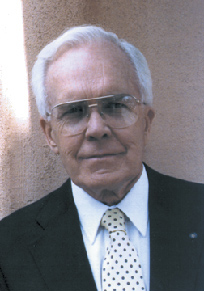
NASHVILLE, Tenn. (BP)–After Dec. 7, 1941, everyone in the United States would always be able to tell others where they were and what they were doing on that Sunday when Pearl Harbor was bombed. Our family had just come home from church in El Paso, Texas, and within an hour we were glued to the radio for the latest reports. In many cities, newspaper extras were on the streets with newsboys shouting headlines: “Japanese Bomb Pearl Harbor!”
For old and young it was a scary day. Later that evening, radio broadcasts confirmed that nine major ships were sunk, Hickham Field was out of commission and most aircraft were destroyed or disabled, and martial law was in force in Honolulu.
El Paso was filled with military veterans, proud of the city’s history and confident of its role in the hour of crisis. Home of the famous First Calvary, it was an ideal training center for combat troops located at massive Fort Bliss with a million acres of protected land.
As the war became increasingly worldwide, my family had participants everywhere. My clergy uncles, Dan Poling and Charles S. Poling, who served in World War I, enlisted again as chaplains. Dan, a war correspondent as well as chaplain, toured every combat theater from Australia to China to North Africa.
Dan served under direct orders of President Roosevelt, who asked him to pursue high-level meetings with world leaders such as Winston Churchill. Dan’s second son, Clark, entered the chaplaincy in 1942. His life had been filled with leadership, popularity and enormous promise.
After his first two years at Hope College in Holland, Mich., Clark moved to Rutgers University in New Brunswick, N.J., just 20 minutes from my home. While he spent his junior year in a dormitory, by his senior year he moved in with us, his upstairs bedroom being next to mine. He became like an older brother to me.
One day I came home from my afternoon paper route and found my parents and brother standing in the dining room. Dad’s face was ashen and Mother’s eyes were glistening with tears. Dad nodded to me and said, “Clark is missing in action.”
“Where?” I asked. “Somewhere in the North Atlantic,” my father replied. Several weeks later, Dan Poling called to tell us that Clark was “lost in action.” He was on the U.S.A.T. Dorchester, one of four chaplains lost in the early morning hours of Feb. 3, 1943, when a German submarine torpedoed the troop ship en route to Greenland.
Later we learned that in the terror and confusion following the attack, the chaplains united in a final, triumphant sacrifice and gave their own lifejackets — and only chance of survival — to others on board. The identity of the four men who received the chaplains’ life jackets has never been known.
The sacrifice made by the chaplains, Chaplain Clark V. Poling among them, has been preserved with the Chapel of the Four Chaplains, an interfaith chapel in Philadelphia, Pa., and commemorated by a three-cent postage stamp, as well as in The Immortal Chaplains Foundation in Minnesota. An association of Dorchester survivors meets every year to mark the anniversary of the sinking.
There were 230 survivors of the Dorchester, picked up by escort vessels after daybreak and taken to Cape Farewell. Asked to describe what happened to the chaplains, one soldier was momentarily at loss for words. The he simply said, “It was the greatest thing I have ever seen or hope to see this side of heaven.”
–30–
Excerpted from “Sea of Glory” by Ken Wales & David Poling. Copyright 2001. Used by permission of Broadman & Holman Publishers.
















